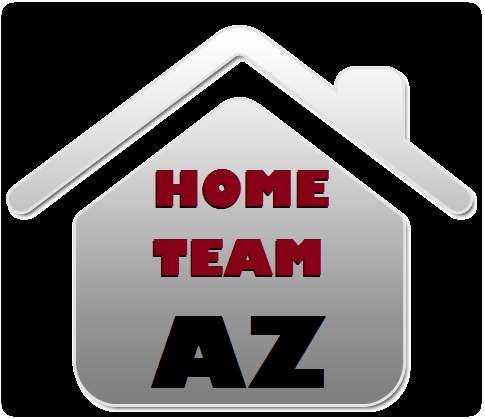Water heater leaks in Peoria: repair & prevention
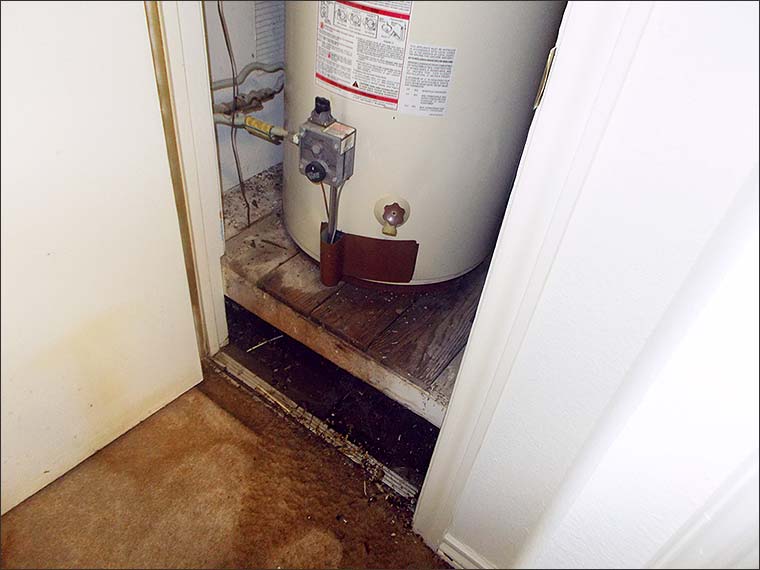 Many water heaters function best when they are regularly maintained (and drained once a year). In fact, your warranty for your warranty heater may be voided if you do not have our plumbers regularly inspect and service your water heater in Peoria. Like changing the oil in your car, there are regular steps to take to keep your water heater working efficiently and for a long time.
Many water heaters function best when they are regularly maintained (and drained once a year). In fact, your warranty for your warranty heater may be voided if you do not have our plumbers regularly inspect and service your water heater in Peoria. Like changing the oil in your car, there are regular steps to take to keep your water heater working efficiently and for a long time.
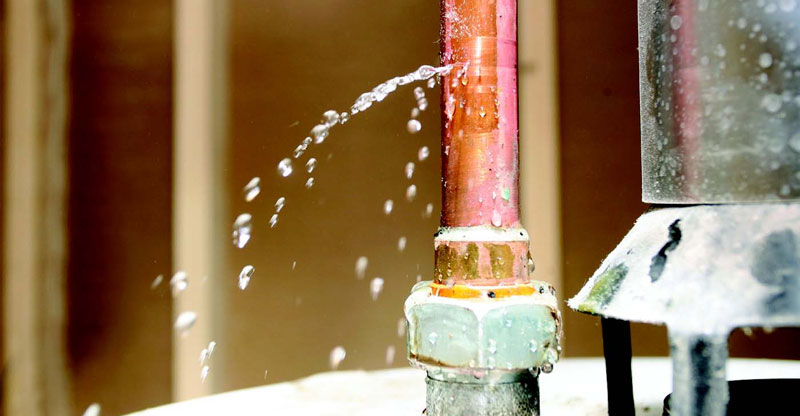
"What if I find a leak?"
It is important to respond quickly to any water leak as if it was an emergency. Even if the leak is small, act quickly to have a professional inspect the leak and stop the flow of water where it should not be flowing."Can my leaking water heater cause water damage and mold?"
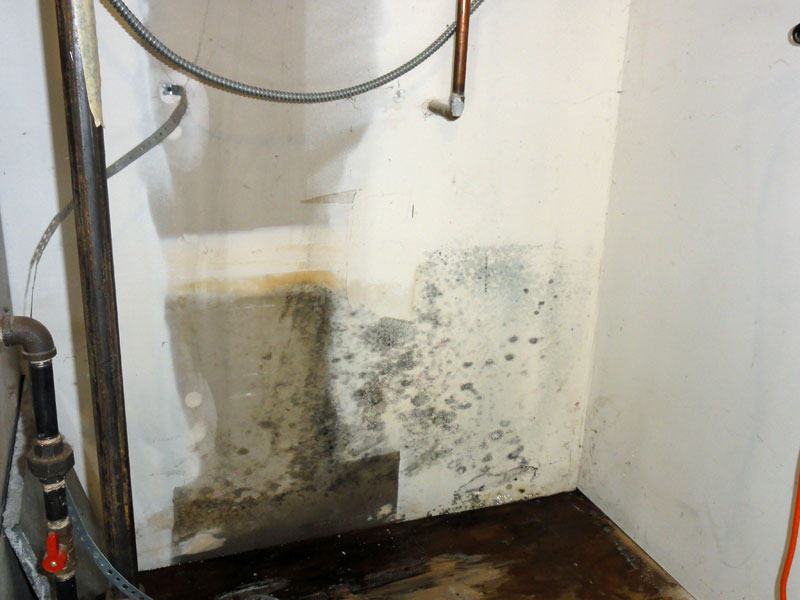 Yes! One reason that all
leaks should be treated as emergencies is to prevent water damage and
mold contamination. Our emergency plumber will come to you in Peoria to determine the source of the leak and stop the flow of water, then determine if there are broken parts that may need to be replaced. Next, the basic indicators of water damage can be assessed, such as discoloration of the wall below a leak. If relevant, restoration specialists in Peoria can make precise measurements of the amount of moisture present in the air or even using a tiny hole drilled in to the interior of drywall.
Yes! One reason that all
leaks should be treated as emergencies is to prevent water damage and
mold contamination. Our emergency plumber will come to you in Peoria to determine the source of the leak and stop the flow of water, then determine if there are broken parts that may need to be replaced. Next, the basic indicators of water damage can be assessed, such as discoloration of the wall below a leak. If relevant, restoration specialists in Peoria can make precise measurements of the amount of moisture present in the air or even using a tiny hole drilled in to the interior of drywall.
Sometimes the source of the leak is obvious, like a massive pool of water under the water heater. In multi-story apartment complexes (or condos) in Peoria, there may be a water heater on an upper level that has a small slow leak that will be recognized by the people living below the actual source of the leak. You might be surprised how often that happens.
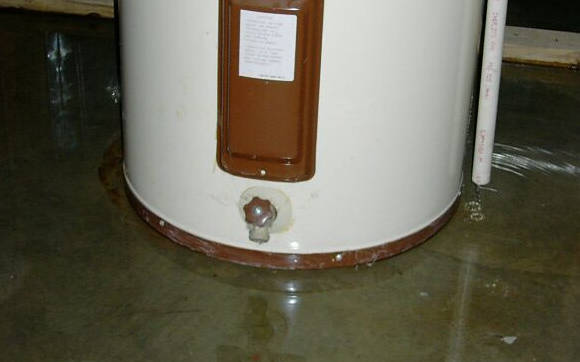 Plus, not all pools of water under a water heater are leaking from the water heater itself. If there is any plumbing in an adjacent wall or in an upper level directly over the water heater, then leaking water from some other source will form a puddle under your water heater. It could even be from a leak in the equipment from your air conditioning system in the ceiling.
Plus, not all pools of water under a water heater are leaking from the water heater itself. If there is any plumbing in an adjacent wall or in an upper level directly over the water heater, then leaking water from some other source will form a puddle under your water heater. It could even be from a leak in the equipment from your air conditioning system in the ceiling.
What is behind the wall near your water heater? Is it your laundry room? Is it a bathroom with a leaking toilet or shower / bathtub?
"So if there is a leak NEAR my water heater, what should I do?"
Again, the first issue is to determine the source of the leak and to stop the flow of water. The leak could be obvious, like a connecting pipe that has burst and is spraying everywhere (such as from a cheap plastic water line to the ice maker of your fridge) or from an overflowing toilet that floods the floor of your bathroom and creeps in to the hallway and beyond. Or, sometimes the leak may actually be hidden from view, like under a sink or even inside a wall.Remember, when drywall gets wet, then the wall is not really a dry wall, is it? Soon, if leaks are not quickly stopped, then the dry wall can become a moist, moldy wall and a moldy wall may need to be completed torn out and replaced.
"What do I do if there is a darker water spot on my wall?"
That is a sign of a substantial concentration of moisture. You need to call us fast for emergency repairs.Water damage is a very serious risk, including because if water is present for even just a few days, then it can lead to the growth of mold. So, especially if a leak has been dripping for days, then the water can flood "up" the wall. First the water will drop by gravity to the baseboard or floor level. However, as that part of the drywall gets saturated, the dark wet spot will start to increase in size. It will appear to crawl up the wall (back toward the source of the leak).
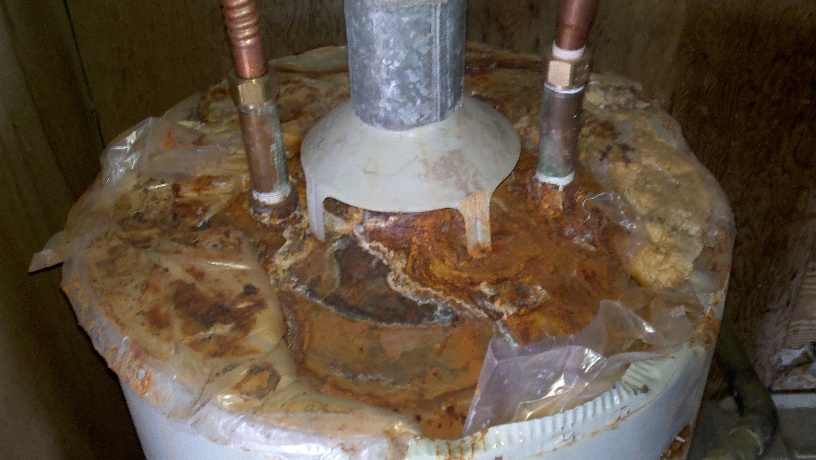 The size of the
leak is not the only issue. The total amount of water that has leaked is what causes water damage, so a small leak that goes undetected for weeks (or months) can be even more destructive than a burst pipe that is immediately obvious.
The size of the
leak is not the only issue. The total amount of water that has leaked is what causes water damage, so a small leak that goes undetected for weeks (or months) can be even more destructive than a burst pipe that is immediately obvious.
Removing flooded water can be easy from a hard floor like tile or the concrete in your garage or utility closet (where many water heaters are stored). To extract water that has soaked in to the walls and "flooded up" from the baseboard toward the ceiling" can be very difficult. Basically, if the drywall is molded or rotted, then it must be replaced. You cannot simply take out the water without taking out the entire lower section of the damaged wet drywall.
Water Heater Leak Repair in PeoriaWe will provide you emergency repairs
|

